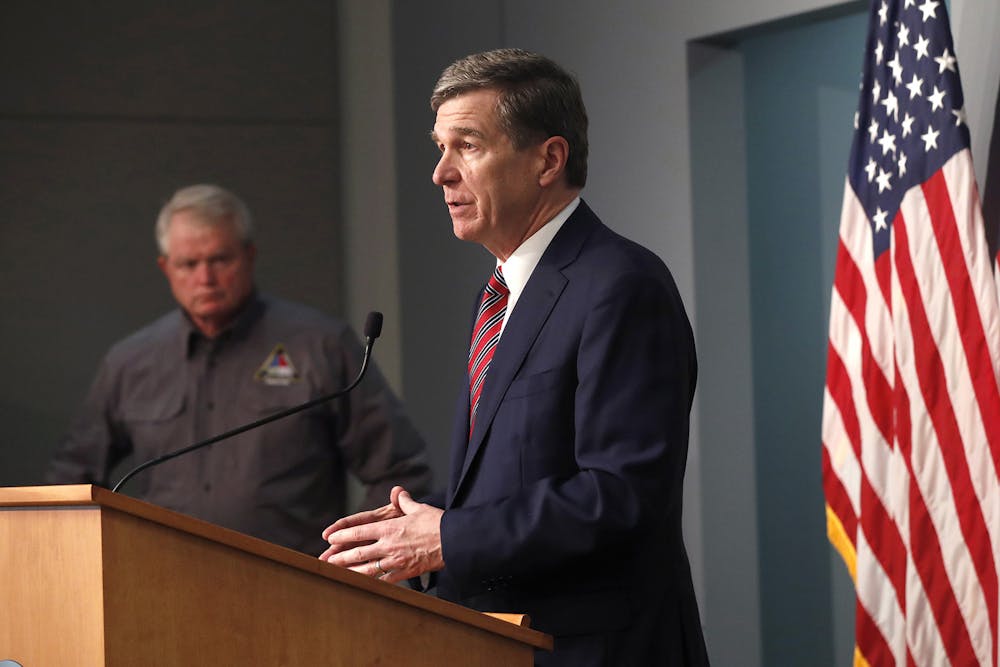North Carolina Gov. Roy Cooper — a two-time UNC alum and self-proclaimed "diet soda sommelier" — is in his last year in the governor's seat. He's battled a Republican-led General Assembly since he was elected in 2016, and a Republican supermajority in both houses since April of last year.
City & State Editor Ethan E. Horton talked with Cooper about his priorities on gun violence and young voter mobilization before the 2024 elections. And his go-to Cook Out tray.
This interview has been edited for clarity and brevity.
The Daily Tar Heel: Gun violence is the leading cause of death for children and teens in North Carolina, and UNC obviously had two major gun-related incidents last semester. But among all that, the Republican supermajority in the General Assembly repealed the pistol permit requirement last year. What are some of the steps your administration is taking, or can take, to stem the growth of gun violence in the state?
Gov. Roy Cooper: I'm betting that most students who were on campus that day will never, ever forget it. Our campuses, above all, should be safe places for everybody. We have to find ways to make sure we get guns out of the hands of criminals, of those who should not have them and children. And we need to stop the flow of guns.
So, what we've done is worked hard on education, on how to keep guns safe from children, to keep guns from being stolen — this is a major way they're getting into wrong hands now. And we're starting a massive education and program about it because we've seen a lot of people go out and purchase guns, many of whom really have never had them before and don't know how to use them. I've been working to strengthen background checks. I took some executive actions, adding more crimes to our background checks.
Young people can play a real role in public policy here. I've talked to passionate college students about wanting to make sure that we keep our society safe from gun violence. If these young people decide to pick candidates who agree with them — and to get out and work for them, and to get them elected — I think it can make a real difference, not only in the next election, but in the elections beyond that.
DTH: I wanted to ask about young people having a role to play, and the efforts to organize young students, including at UNC. The Orange County Campus Organizing Project is one example of that. What are you and the state party doing to actively organize young voters?
RC: I see the passion and the intelligence of college students, many of them right on the UNC campus, and there is a real desire to see policy change. Often, though, that doesn't translate to voting and the mechanics of voting.




